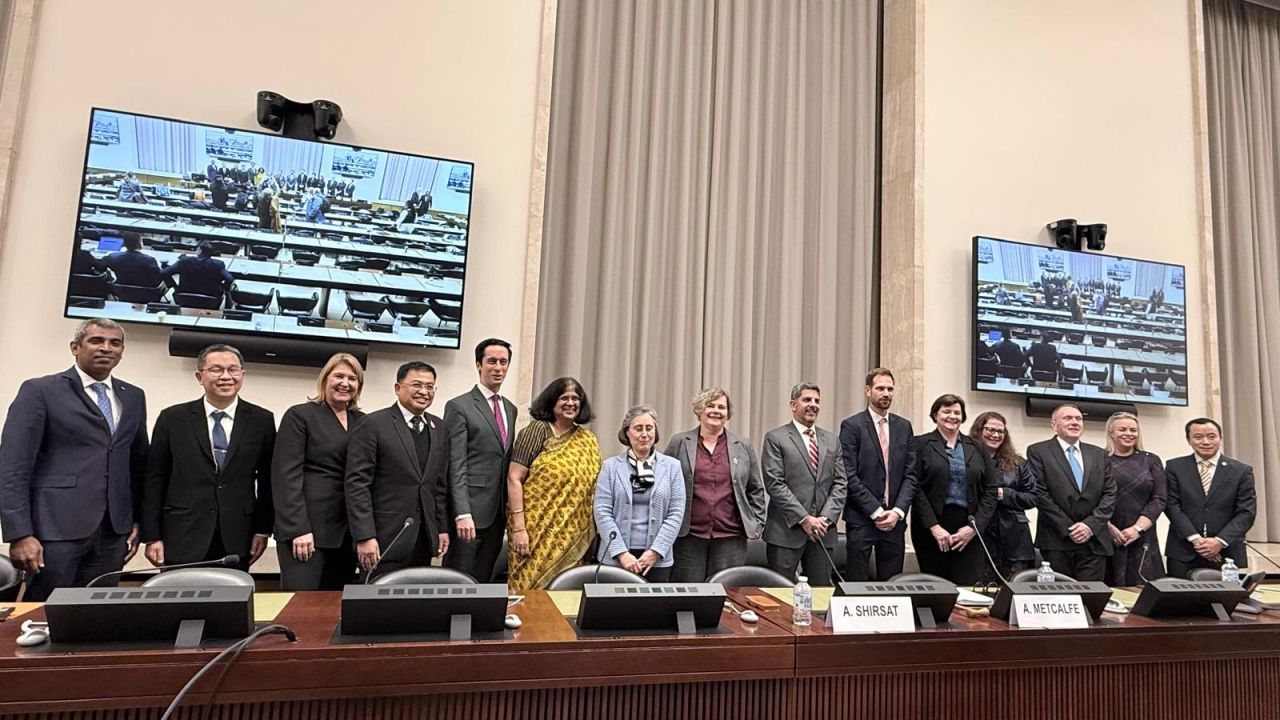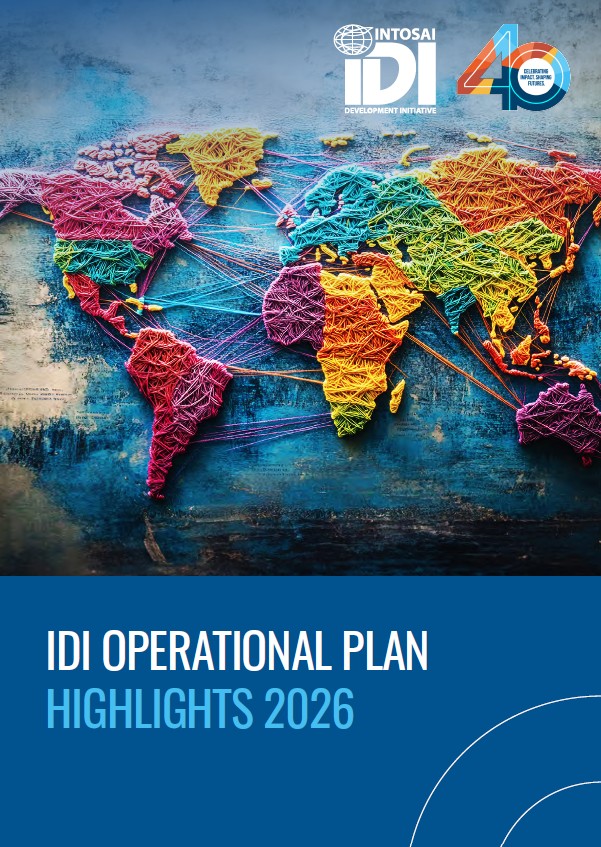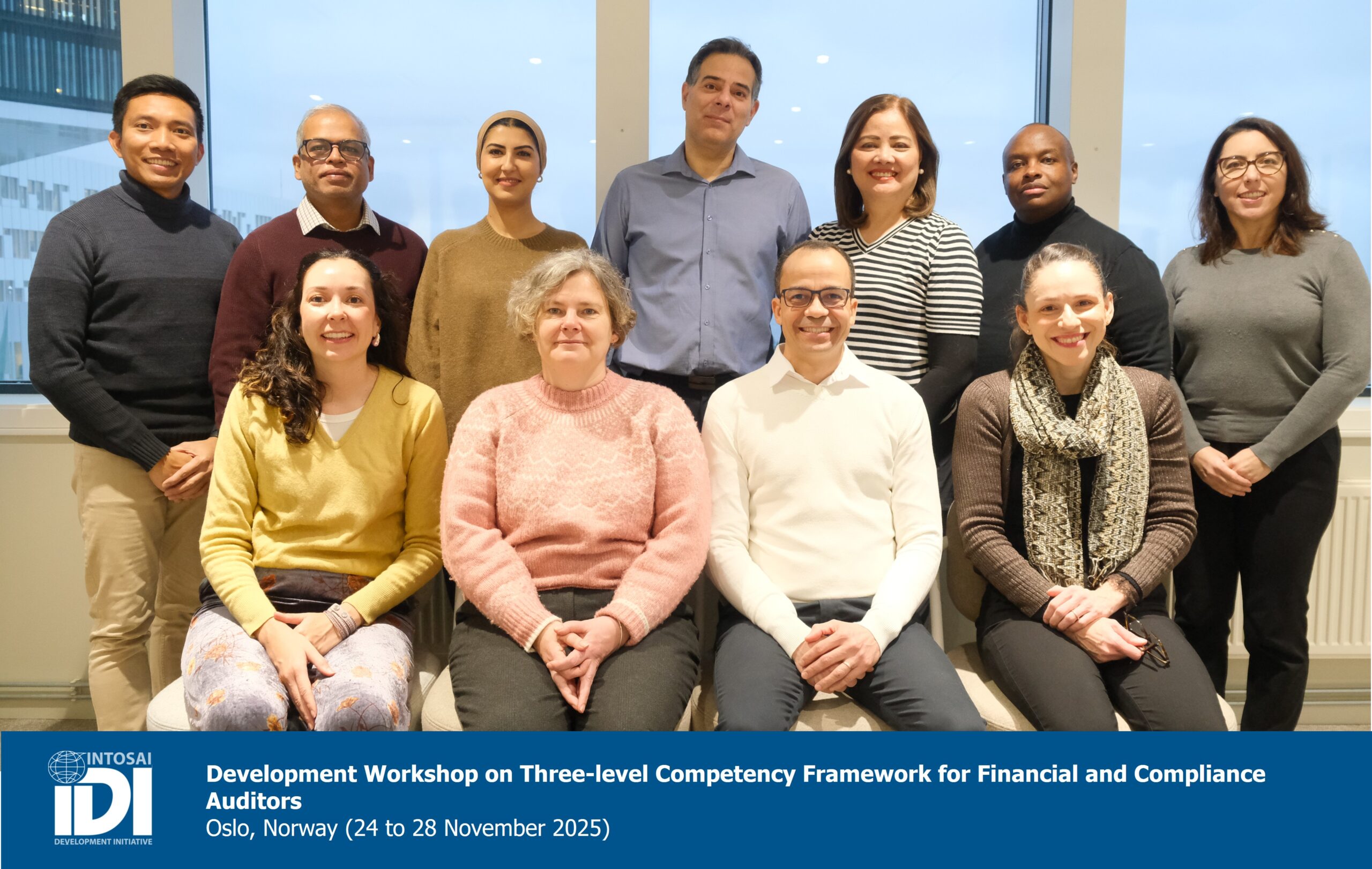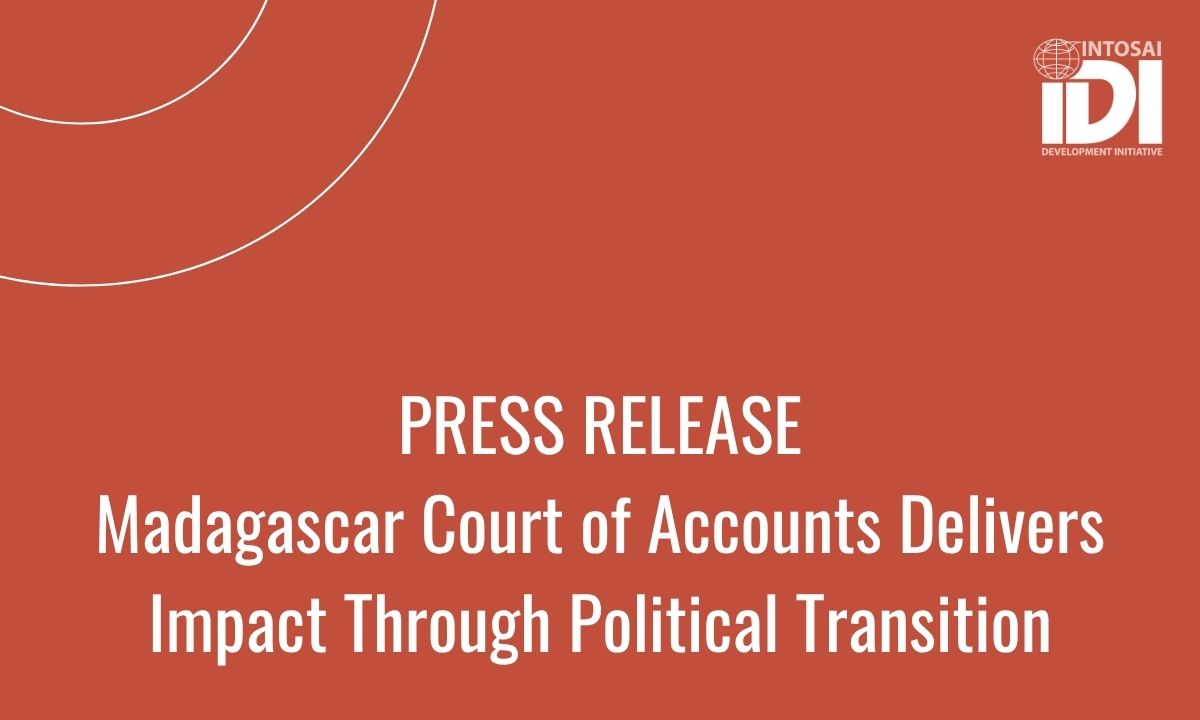With less than a month to go to IDI’s next Board Meeting, we’re delighted to profile IDI Board Member, Pamela Monroe Ellis, Auditor General of Jamaica.
Mrs. Pamela Monroe Ellis was appointed as Auditor General of Jamaica in 2008. In 2012, she was appointed to the Board of the International Federation of Accountants (IFAC), where she served for 6 years. During her tenure at IFAC, she served on both the Audit Committee and Chair of the Governance Committee. Mrs. Monroe Ellis was appointed Secretary-General of the Caribbean Organization of Supreme Audit Institutions (CAROSAI) in 2016. In the same year, she was appointed to serve as Jamaica’s representative on the Caribbean Community (CARICOM) Secretariat Audit Committee, which she Chaired until December 2019.
Mrs. Monroe Ellis served the Institute of Chartered Accountants of Jamaica (ICAJ) over 15 years combined, as a member of its Audit Practice Committee and Investigations Committee, and for four years as Chair. She is currently a member on the Board of the INTOSAI Development Initiative (IDI). Mrs. Monroe Ellis has also been a member of the ACCA Global Forum for the Public Sector since January 2019, and in May 2020, she was appointed Chair of the International Financial Reporting for Non-Profit Organizations (IFR4NPO) Steering Committee.
Mrs. Monroe Ellis was appointed to the Integrity Commission and Commission for the Prevention of Corruption in 2008; she served both Commissions until the merger of both to form Jamaica’s New Integrity Commission, where she currently serves as a commissioner. She is currently a member of the Board of the Governor-General of Jamaica Trust. In February 2019, Mrs. Monroe Ellis also received the RJR Gleaner Honour Awards for outstanding work in the Public Service.
Mrs. Monroe Ellis is a Fellow of the Institute of Chartered Accountants of Jamaica (ICAJ) and the Association of Chartered Certified Accountants (ACCA, UK). In her rare spare time, she enjoys reading.
Our ‘Meet the Board’ questions
Background: SAI Jamaica and other SAIs from the CAROSAI region have been involved in the IDI-supported cooperative audit of strong and resilient national public health systems linked to SDG target 3.d. The aim is to provide relevant audit responses in a time of a pandemic.
The SAI of Jamaica has been involved in the 3.d Audits. How do you lead a SAI through the challenges of auditing public health capacities during a time when the system is under unprecedented strain?
The challenges in this regard are twofold, the first from the perspective of the SAI and the other arising from the obvious pressure that the health care system is currently facing.
In Jamaica, over the last couple of days, we have seen a downward trend in the number of cases reported daily. The number of deaths is also trending in the same direction. However, though the numbers are trending downwards, the health care sector has sustained a battering equivalent to a category five hurricane. It will take some time for the sector to return to some semblance of normalcy, not only from an infrastructure standpoint but the mental and physical toll on healthcare workers and administrators.
This simply means that health care workers and administrators who would be instrumental to the audit process will likely not be accessible during the audit or may not be receptive to the audit, rather seeing it as intrusive and an additional burden that they can do without at this point. Naturally, the stakeholders would be sympathetic to the healthcare workers at this juncture.
The auditor, therefore, must proceed with sensitivity to the environment and must contemplate the mental space of the administrators to be responsive to us, the auditor. No doubt there will be a negative effect on the timeliness of responses or submission of information needed for audit analysis. SAI Jamaica will have to take this into consideration and promote the audit from the standpoint of adding value and not merely being critical. It’s therefore our responsibility to get the buy-in of the health officials to garner cooperation through the process whilst clearly demonstrating our appreciation for the challenges they are experiencing.
On the other hand, Jamaica has a very low vaccination take-up, so there are still restrictions on gathering and social distance requirements. This impacts the auditors’ ability to go into the field and obtain information from the entities’ records using the traditional approach. As we must place reliance on the information being submitted to us as requested, this denies us the benefit of being on the ground to observe and immerse ourselves in the environment.
However, it is what we must work with. Thankfully, our audit process is fully automated, and our communication and networking applications allow us to facilitate virtual meetings and the transfer of large amounts of data. Communication is key and we hope that our focus group discussions, where we meet with the relevant stakeholders, will aid in articulating the audit objectives and obtain the buy-in of the auditees.
In your role as Secretary General of CAROSAI, why do you think it is important for the region to undertake this audit? – and what positive impact could the audit contribute to in the region?
The Corona Virus Pandemic has had significant economic implications for many Caribbean countries. This is borne out of the stifling effect that the COVID-induced lockdowns have had on business sectors as well as the negative ripple effect of reduction in global travel, which disproportionately affected Caribbean countries relying on tourism as their main source of revenue and foreign exchange. The world has seen the pandemic’s onslaught on health institutions leaving hospitals bursting at the seams and frontline workers severely stressed.
The experience of the COVID-19 pandemic allows us to conclude confidently that a country must have a resilient health sector if it is to withstand the negative impact of a pandemic and respond to health care emergencies. We are now aware of the deleterious effect that health crises can have on world travel and the sustainability of small and medium-size entities; this impacts the Caribbean as well as other developing countries disproportionality. Yet, we are still confronted with limited resources now exacerbated by the current pandemic. The focus then must be on the efficient utilization of funds allocated to areas of priority.
The findings and the recommendations emanating from the 3.d audit should contribute to identifying 1) areas of significant gaps in resource allocation which would impact health care delivery to the vulnerable population and 2) weaknesses that may facilitate leakage of resources and place undue burden on a struggling health sector. The audit results will allow for the identification of systemic weaknesses across the region, which could lend to the development of a regional strategy to address health care issues through the development of a robust, informed health care plan.
The upcoming IDI Board meeting takes place on 25 November, which is also the International Day for the Elimination of Violence Against Women. Gender-Based Violence (GBV) is a public health issue and has increased globally during the pandemic. How do you think the audit of SDG 3.d could contribute to efforts at improving the public health response to GBV?
One of the objectives of the 3.d audit is to determine whether the health care plan is inclusive and contemplates the vulnerable, who are unable to access support for mental well-being and basic crisis support. The Lancet correspondence| volume 396, issue 10262, p1562, published November 14, 2020, and other research, suggest that gender-based violence increased during pandemics, affecting women disproportionately.
It’s my view that a public health response would have to incorporate inclusiveness and response mechanisms aimed at reducing the level of gender-based violence through public education campaigns. During the conduct of our audit, we would aim to determine the resource allocation towards this specific issue with the objective of contributing to enhanced focus on this area.
Initiative
Topics
Recent News





